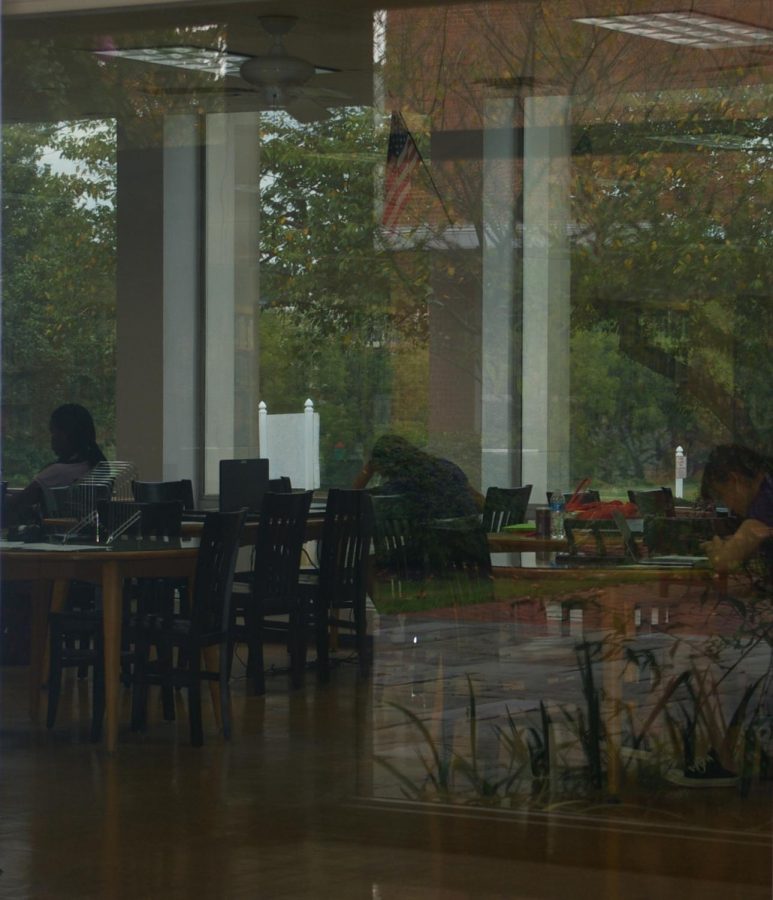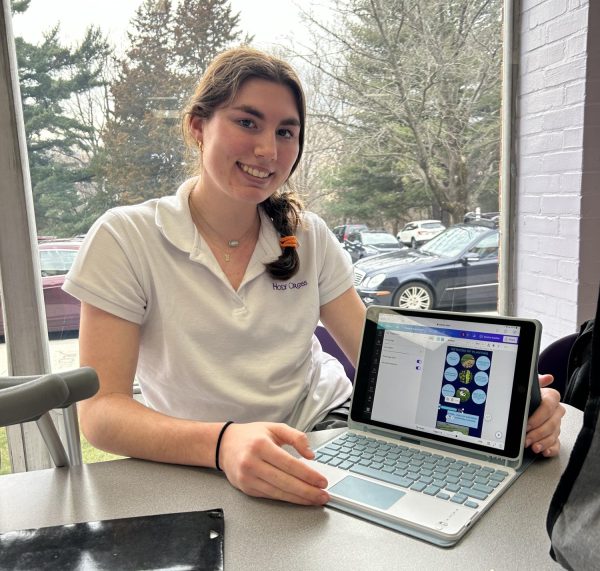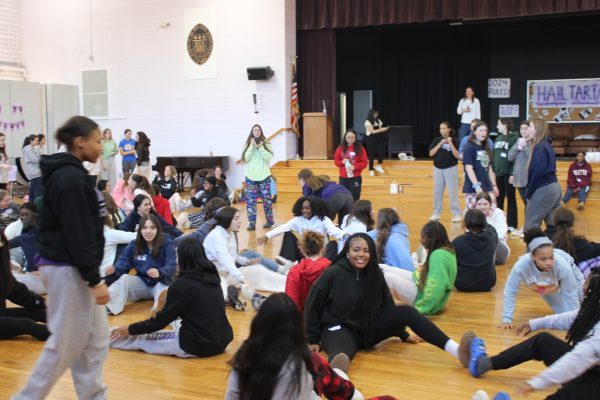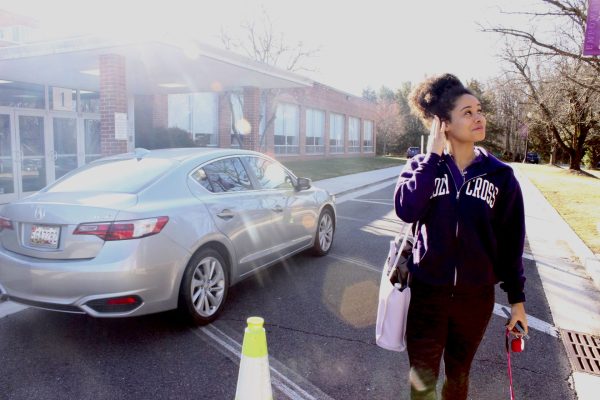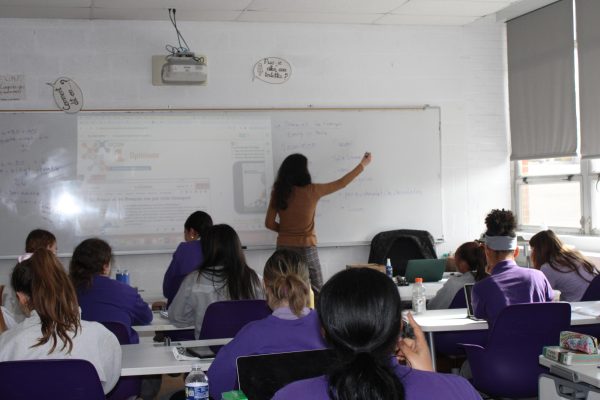Tight On Time: How to Manage a Busy Schedule
Two AHC students share their advice on managing a busy schedule.
Photo by Sophia Costa
Students studying in the campus library.
School is a place to expand knowledge of the universe, strengthen one’s faith, and broaden social circles. The struggle is that the work that accompanies all the classes can interfere with off-campus life. Long hours are spent on completing homework or studying for a test, so it is important to find more efficient ways to manage schedules.
Junior and avid participant in AHC theatrical productions Grace Miller offers insight on how she balances her time in the theatre and her time completing schoolwork. Grace has three to four hours of homework each night and takes six IB classes as well as Honors Physics.
“I have been able to complete my work while also doing extracurriculars by taking advantage of my study hall, managing my time, prioritizing what homework to do. For example, I try to do all of my simpler homework or the homework that is closer to being due first so that I then have time to focus on the larger assignments/projects,” Miller explained.
Her advice is to focus on managing time well. Grace stated that “Even on the nights when I don’t get home until 7:00 because of musical rehearsal, I am usually able to finish my homework by 10:30-10:45 because I sit and focus on getting the homework done and try to avoid distractions so that I can be more efficient.”
Miller suggested that students “categorize/prioritize homework: write a list of what needs to be done and when it needs to be done, and then start with work that is closest to being due and the homework that won’t take a very long time, so that you can complete this work efficiently and then move on to any bigger/long term assignments that you might have.”
Senior Olivia Young is a member of the AHC Adrenaline Dance team, shared that she takes “mostly honors or college level classes.” Her schedule of AP, IB, and Marymount Dual Credit classes results in her receiving about three hours of assignments on a normal day.
“I make sure to be productive during my free periods and to make use of gaps in my schedule where I can study. For instance, if I have a dance class at 4:30, I will stay after school and get as much work done in the library as I can until 4, then go the class,” Young explained.
Young advises lower-class women to take classes that interest them “because then they will be more motivated to actually learn about a subject and do the tedious or challenging work that can come along with the class. I would also tell them to find activities they enjoy at Holy Cross, so that they have an outlet for stress related to school.”

Sophia, class of 2021, is in the fall semester of the Multimedia Journalism course at Academy of the Holy Cross. She enjoys reading, writing, swimming,...

